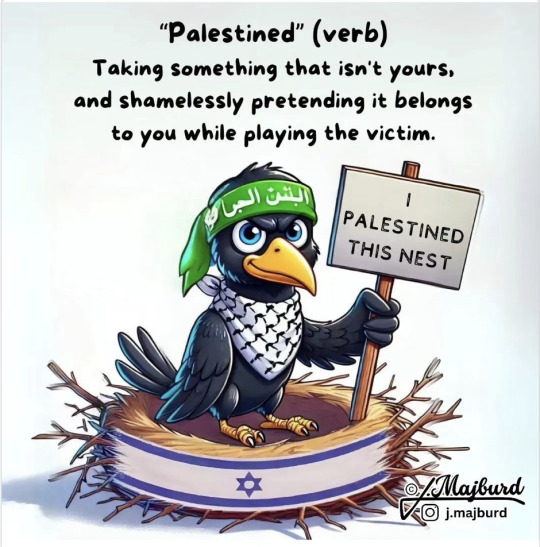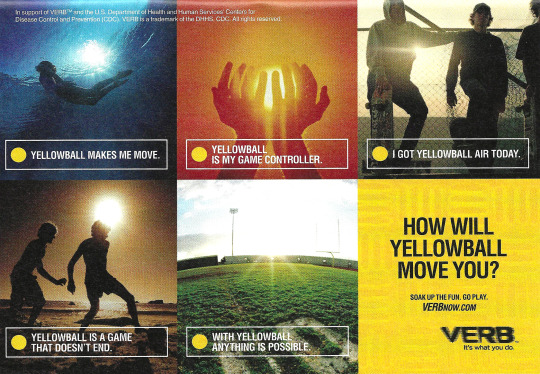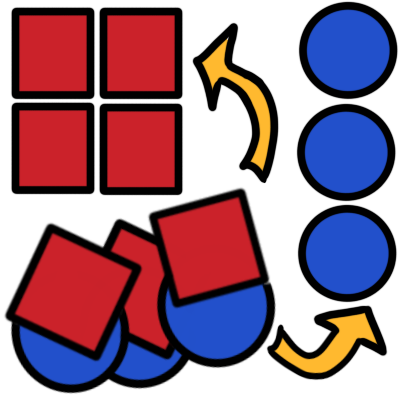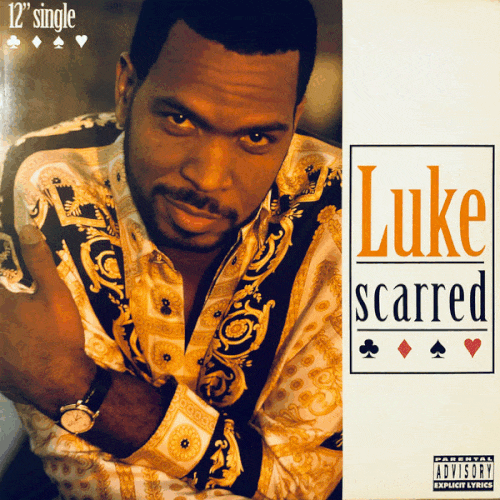#verb
Explore tagged Tumblr posts
Text
Writing Basics: Descriptive Verbs

A verb is a word that’s used to describe an action.
Descriptive verbs - (or strong verbs) are single-word actions that add to the tableau in the reader’s mind, giving it a boost of color and energy.
In many cases, an engaging, vivid verb is more concise and telling than a straightforward, overused one.
The man ran quickly toward the smoke, versus
The man sprinted toward the smoke.
Weak verbs are simply common ones—words that describe the bare minimum of the action. Sometimes that’s the best way to keep your writing clean and direct, but it can also lead to a lack of color, or personality.
Types of Descriptive Verbs
The most powerful verbs evoke imagery and emotion in the action of the verb itself. A dog doesn’t just eat its food—it gobbles it. The glass doesn’t just break—it shatters.
Questions to consider when replacing your verbs:
Verbs of movement: Movement is especially ripe for descriptive words. Movements communicate how your characters feel, what they want, and how they present themselves to the world. Is your character merely walking along from point a to b? Or do they project more attitude with a saunter or perhaps swagger? Are they in a skipping mood? These movement verbs can also denote a sense of place, and urgency: Depending on the terrain, perhaps they plod through mud or stagger over jagged rocks. Suspicious characters might slink away into the darkness, or scamper just out of reach.
Verbs of stillness: In real life, stillness is never entirely devoid of movement, and is equally revealing. A nervous character doesn’t merely sit, they perch on the edge of their seat. A rude character might slouch in their chair. A character who has just received terrible news may slump on the couch.
Verbs for speech and expression: With dialogue attribution, you could write an entire novel using only “said,” without having to resort to more descriptive verbs like “shouted,” “cried,” or “whimpered.” The best answer is a balance: try to keep your language from jarring the reader out of the story, but considering your character’s intent when searching for the right descriptive verb in dialogue also allows you to quickly deliver more information to the reader. When is a laugh so cruel it becomes more of a snicker, or so unguarded it bursts forth as a guffaw? Muttering a word under the breath might be a sign of dissent, while a whimper is one of surrender. Create volume in your dialogue by introducing sound-oriented synonyms, like whispers or shouts.
When to Use Descriptive Verbs
The best verbs help you hone your prose to give you the effect you wish to achieve. Think about the tone do you want to set—what feelings or mood do you want to evoke? What kind of language will best deliver the story you want to tell?
Reading your work aloud is an excellent way to both hear the sonic effects of your prose and catch awkward repeated sounds or other unintended effects. Read through your writing and make a note of where things feel too slow, or stale.
Where are the moments where your prose stalls out? Highlight all the verbs you’ve used in that section and find stronger words to heighten the tension or enhance the mood of the scene.
Reasons to Use Descriptive Verbs in Writing
Using descriptive verbs is especially useful when considering pacing; active verbs help anchor your writing in the present tense, contributing to the exciting (or suspenseful, emotional, moody, exuberant) tone you might be going for.
Weak verbs, in general, are often supported by adverbs of manner (those descriptive words that end in “-ly”). Good descriptive verbs rid your sentences of the need for too many adverbs, and can also keep state-of-being verbs (like am, is, are, and was, which lead to passive voice) in check.
Source ⚜ More: Writing Notes & References ⚜ Writing Resources PDFs
#description#verb#writing notes#writeblr#literature#writing tips#fiction#writers on tumblr#writing reference#dark academia#spilled ink#writing prompt#creative writing#writing advice#on writing#light academia#writing inspiration#writing ideas#writing resources
221 notes
·
View notes
Text
The 然's
突然,虽然,忽然. and the other 然's can often get mixed up, so here's a quick explanation of some of the most common ones!
突然 (Túrán): This means suddenly or unexpectedly
居然 (Jūrán): This kind of means suddenly, but more in the sense of "surprisingly" or to suggest disbelief at something that happened.
忽然 (Hūrán): This also means suddenly or unexpectedly, but it has a more stronger connotation.
既然 (Jìrán): This is a conjunction meaning "since" or "now that"
既然the weather is great, let's go out!
既然 you aren't busy, let's go watch a movie.
不然 (Bùrán): This means "otherwise" or "or else";
You should study, 不然 you won't do well on the exam.
虽然 (Suīrán): This means although or even though.
虽然 I'm not good at singing, I still like to go to the karaoke.
当然 (Dāngrán): 当然 means certainly or definitely and can be used as a reply:
Can you help me with A? 当然!
自然 (Zìrán): This can mean nature or naturally.
China's 自然 is very beautiful.
She speaks Chinese 得很自然.
仍然 (Réngrán): This can mean "still" or "yet".
I仍然 haven't read that book.
依然 (Yīrán): Similar to 仍然, this also means still" or "yet" but it's usually used in more formal and literary works, whereas 仍然 is more often used in spoken language.
果然 (Guǒrán): 果然 can be used to mean "indeed" or "as expected"
This movie is 果然 interesting.
竟然 (Jìngrán): This is an adverb used to suggest surprise or something unexpected.
He竟然forgot her birthday.
显然 (Xiǎnrán): This means "clearly" or "obviously".
This soup 显然 hot.
偶然 (Ǒurán): This means "accidentally" or "by chance".
We 偶然 met at the same cafe.
How many other 然's do you know about? Drop a comment!
#slavic roots western mind#student life#student#study blog#college#college life#travel blog#aesthetic#studyblr#study motivation#chinese#china#study in china#life in china#learn chinese#chinese grammar#grammar#vocabulary#chinese vocabulary#chinese verbs#verbs#verb#chinese studyblr#mandarin langblr#mandarin#mandarin chinese#chinese language#language learning#chinese langblr#language resources
483 notes
·
View notes
Text

australians_for_israel
"To do the same horrible act over and over expecting different results and then playing the victim when it backfires"
#alestined#verb#palestine#gaza#hamas#propalestineprotesters#propalestinebullshit#wehadenough#antisemitismaustralia#antisemitism#australiaunderattack#australiajewishcommunity#jewhatred#jewishaustralia#october7#neveragain#stopthehate#standwithisrael#standwithus
210 notes
·
View notes
Text
166/365 - 08.06.2025
einfallen (Verb, trennbar: ein·fallen) invade, collapse, come to mind
Mir ist gerade eingefallen, dass ich noch Milch kaufen muss.
die Erfahrung (Nomen) experience, expert knowledge
Die Ärzte haben Erfahrung in Menschen zu retten.
die Möglichkeit (Nomen) possibility, chance, option
Ich habe die Möglichkeit, nächsten Sommer nach Japan zu reisen.
53 notes
·
View notes
Text
laso
noun: the color blue, or green, and their shades
adjective: blue or green
verb: to make something blue or green
Examples:
o lukin e laso suli. ("Look at the sky [lit. 'the big blue'].")
kasi li laso. ("Plants are green.")
jan li kama laso tan moku. ("The person became green because of the food.")
mi jo e tomo laso. ("I have a blue room.")
sina moku e telo nasa laso? ("Did you drink the blue cocktail [lit. 'the blue strange water']?")
o laso e suno! ("Let the light become green!")
sitelen pona:

27 notes
·
View notes
Text
Word of the day:
Speel
Verb
A misspelling of the word 'spell' made originally by @duck-offical in the Offical Officalverse Discord server on accident. This is considered an "offical officalverse word"
"I speel it as pound"
Similar: Spelking, misspelled by @red-solo-cup-offical
Origin: Spell
Verb
Write or name the letters that form (a word) in correct sequence.
"Dolly spelled her name"
Be a sign or characteristic of.
"She had the chic, efficient look that spells Milan"
#oxford dictionary#word of the day or bonus word#speel#spell#verb#offical officalverse word#officalverse
13 notes
·
View notes
Text

November 2005
8 notes
·
View notes
Text

"organise"
image: four red squares in a neat grid and three blue circles in a neat column. there's also a few of each jumbled together. arrows go from the jumbled shapes to the neatly organised shapes
#actions#verb#verbs#organise#aac emoji#aac image#aac symbol#communication image#communication symbol#custom emoji
29 notes
·
View notes
Text

#Rap & Hip-Hop#Rap#Hip-Hop#Hip Hop#hiphop#music#1990s#90s#luke#scarred#verb#trick daddy#uncle luke#luke skywalker#2 live crew#the 2 live crew#gif
17 notes
·
View notes
Text
Today's word of the day is...
Truncated
[Verb]
Definition: Cut short.
Example Sentence: Mika frowned, mourning the loss of their truncated career.
21 notes
·
View notes
Text
#james baldwin#maya angelou#lgbt#lgbtq#homosexual#lgbtqia#pride month#pride#love#love is love#love wins#literary geniuses#the greats#conversation#interview#reality#life#verb#adjective#noun#human experience#human#human life#existence#human existence#lessons#lesson#life lessons#life lesson#lessons in life
37 notes
·
View notes
Text
Writing Refresher: Verb Tenses
Only 2 tenses are conveyed through the verb alone: present (“sing") and past (“sang").
Most English tenses, as many as thirty of them, are marked by other words called auxiliaries.
Understanding the 6 basic tenses allows writers to re-create much of the reality of time in their writing.
Simple Present: They walk.
Present Perfect: They have walked.
Simple Past: They walked.
Past Perfect: They had walked.
Future: They will walk.
Future Perfect: They will have walked.
12 MAIN TENSES
Simple present: She writes every day.
Present progressive: She is writing right now.
Simple past: She wrote last night.
Past progressive: She was writing when he called.
Simple future: She will write tomorrow.
Future progressive: She will be writing when you arrive.
Present perfect: She has written Chapter 1.
Present perfect progressive: She has been writing for 2 hours.
Past perfect: She had written Chapter 3 before she started Chapter 4.
Past perfect progressive: She had been writing for 2 hours before her friends arrived.
Future perfect: She will have written Chapter 4 before she writes Chapter 5.
Future perfect progressive: She will have been writing for 2 hours by the time her friends come over.
PERFECT TENSES
Usually, the perfect tenses are the hardest to remember. Here’s a useful tip: all of the perfect tenses are formed by adding an auxiliary or auxiliaries to the past participle, the third principal part.
1st principal part (simple present): ring, walk
2nd principal part (simple past): rang, walked
3rd principal part (past participle): rung, walked
In the above examples, will or will have are the auxiliaries.
Most common auxiliaries: be, being, been, can, do, may, must, might, could, should, ought, shall, will, would, has, have, had.
Sources: 1 2 ⚜ More: Writing Basics & Refreshers
#writing basics#grammar#writeblr#langblr#linguistics#dark academia#literature#writing reference#writers on tumblr#writing prompt#spilled ink#verb#poets on tumblr#poetry#creative writing#fiction#light academia#writing resources
181 notes
·
View notes
Text
The 头 character
It's been a while since I last did a character breakdown, and now it's 头 turn.
头 (T��u) - Head
实 (Shí) - Real, honest, true, reality
买 (Mǎi) - To buy, purchase
卖 (Mài) - To sell, to betray, to sell out
读 (Dú) - To read, to study, to attend school/university
续 (Xù) - to continue, to carry on
赎 (Shú) - to redeem
渎 (Dú) - a ditch (gutter), to annoy/trouble someone
牍 (Dú) - document, writing tablet
犊 (Dú) - A calf
荬 (Mǎi) - a name of a plant
觌 (Dí) - face to face, to see someone (not very widely used)
黩 (Dú) - to darken, to insult, to dishonour, corrupt
#中文#chinese#汉语#learn chinese#mandarin langblr#mandarin#learn mandarin#china#studyblr#study blog#travel blog#student life#slavic roots western mind#chinese characters#chinese language#汉字#life in china#chinese grammar#grammar#vocabulary#chinese vocabulary#chinese verbs#verbs#verb#chinese studyblr#language learning#chinese langblr#language resources
94 notes
·
View notes
Text

© Devis Bergantin, Verbo fossile, 2025, porzione di disegno digitalizzato, databending e fotoritocco, 1241 x 993 pixel
© Devis Bergantin, Fossil verb, 2025, digitised drawing portion, databending and photo editing, 1241 x 993 pixels
#Devis Bergantin#artist#visual artist#contemporary artist#digital artist#glitch artist#drawer#contemporary drawer#artists on Tumblr#art#contemporary art#outsider art#art singulier#digital art#glitch art#glitch aesthetic#glitchcore#glitch#new media#new aesthetic#drawing#experimental drawing#artwork#fossil#verb#digitised drawing#databending#photo editing#colours#art project
7 notes
·
View notes
Text
175/365 - 17.05.2025
vorstellen - introduce 👩👨
Anna hat mich Tom vorgestellt.
gültig - valid
Der Führerschein (driver's license) 🚗 ist nicht mehr gültig.
26 notes
·
View notes
Text
luka
noun: the arm or hand
verb: to touch (with your hand)
number: five
Examples:
mi pakala e luka mi. ("I broke my hand.")
luka pi soweli ni li lili mute! ("This animal's paw is so small!")
sina o luka ala e moku. ("You shouldn't touch the food [alt. 'Don't touch the food'].")
ona li jo e poki pi nanpa luka. ("He has five boxes [lit. 'boxes of hand number'].")
mi sona e ma ni sama monsi pi luka mi. ("I know this place like the back of my hand.")
sitelen pona:

14 notes
·
View notes